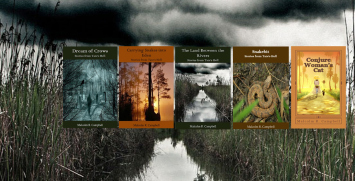Malcolm R. Campbell's Blog, page 203
June 26, 2015
Dill: it does more than season granny’s pickles
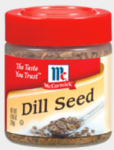 If your granny taught you anything, she made sure you knew how to make a proper dill pickle. I’m not going to repeat the recipe here, because I ain’t your granny. Suffice it to say, it includes dill. Surprised?
If your granny taught you anything, she made sure you knew how to make a proper dill pickle. I’m not going to repeat the recipe here, because I ain’t your granny. Suffice it to say, it includes dill. Surprised?
Most people don’t grow their own dill. If you don’t, your pickles won’t do well at the state fair. Surely, granny told you this. Whether you’re using seeds or leaves (sprigs), pickles just taste better when you grow your own dill because factory fresh ain’t fresh.
If your granny was cagey, she probably didn’t tell you that you can attract a lover by soaking yourself in a “love-drawing bath.” Obviously, there are hundreds of spells you can add to the mix, but since taking a bath is a good idea before going out on a date, the dill seeds you collected and dried yourself are superior to those from the factory. (A fair number of sites tell you how to dry the seeds. Here’s one of them.)
The leaves from your fresh-from-the-garden dill will remove a jinx, possibly the kind of crossed condition a rival might have put on you to keep you from finding the mate of your dreams. Make a coction with the leaves and ginger root, strain it, and rub it on yourself like sun screen. Think of it as a jinx screen. Do this for at nine days.
Maybe you’re not jinxed. Okay, then soak those dill seeds in water for three days and add them to your next bath. Soak yourself for a while (but not for nine days!).
Good luck.
Now, if you need something more powerful, there are dozens of hoodoo practitioners out there with hundreds of love spells involving candles, incense, oils, letters and even some properly obtained graveyard dirt. (Hint: get that, with a token of payment, from the grave of a good person, leaving out the black sheep in your family and/or a lunatic.)
I’m an author. I look this stuff up when writing stories like “Snakebit” and “Dream of Crows,” and my Conjure Woman’s Cat novella. That means that I “fake it,” I don’t prescribe it. My granny wasn’t a conjure woman (that I know of) so she didn’t hand down any spells. She often said, though, that “things are in a real pickle”–whatever that meant.
But, like suggesting sickly people should have a bowl of chicken soup, I’m in the clear by suggesting you throw some dill seeds in your bath.
If that doesn’t work, maybe you’re forgetting to brush your teeth.
–Malcolm
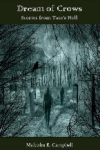 Malcolm R. Campbell is the author of “Dream of Crows,” a dark story about a sexy conjure woman, a swamp, a cemetery and–it goes without saying–some graveyard dirt. It’s free on Kindle for two more days.
Malcolm R. Campbell is the author of “Dream of Crows,” a dark story about a sexy conjure woman, a swamp, a cemetery and–it goes without saying–some graveyard dirt. It’s free on Kindle for two more days.


June 23, 2015
Those who routinely slander the South are bigots
“Oddly, the same people who disparage us also have love affairs with our culture. They ridicule us and then profess their love for Nina Simone, Austin, Johnny Cash or Louisiana’s crawfish etouffee dish when it’s trendy. This brings me to my favourite specimens: cocktail party progressives. You know the type – can’t converse without referencing the New Yorker. Pretentious, self-congratulatory liberals who applaud their own humanity while mocking the south. Curiously, they feign knowledge of Hank Williams when fashionable, but their intellectual elitism forgets that Truman Capote and Tennessee Williams were southern geniuses. ” – Seema Jilani in “Deep prejudice about the deep south”
“Liberal prejudices are against three related groups: evangelicals, whom we do not give the respect of other religious groups; Southerners, whom we hold guilty of uniquely wicked views and behavior, as well as stupidity, evangelicalism and talking funny; Texans, we say, combine the wickedness and corn pone dialect of Southerners with diabolical evils all their own. Since evangelicals in our own back yard tend to be invisible to us, let’s sum all of this up as a single bigotry, the prejudice of regionalism.” – Gary Bennett in “The Last Acceptable Prejudices”

Charleston
As Gary Bennett suggests, hating the South is one of this country’s last acceptable prejudices.
Even those who go to great extremes these days to support love and acceptance for other nations and peoples, have little problem denouncing the South as an outer circle of hell where the majority of the doomed is purportedly racist, backward, stupid, has white supremacist views, are members of a “unsophisticated” churches, and talk so strangely their accents are mocked on variety shows and talk shows to great applause.
The South is mocked with the same overarching superiority and derision that Blacks were once mocked in minstrel shows. Those who see no humor in films or commentaries about old minstrel shows, believe that slandering the South is not only funny, but allegedly demonstrates high levels of liberal and progressive thought, a politically correct philosophy about all that’s wrong in the world, and a piety higher than Heaven.
Ironically, those who mock the South are bigots even though that mockery includes saying that Southerners are bigots.

Watts
Those who slander the South with the claim that racism is an inherent Southern trait become silent when they are asked why the nation’s largest race riots occurred outside the South. While forgetting Watts in 1965, Detroit in 1967, Ferguson in 2014, and Baltimore in 2015, they presume sufficient purity to cast the first stone.
Those riots did not cause the rest of the country to create an across-the-board slander campaign against California, Michigan, Missouri or Maryland. Yet, in the wake of the senseless killings by one man in Charleston, the national and social media have been filled with a return of self-righteous individuals’ across-the-board mockery of everything Southern.
Those who disparage everything and everyone within the South don’t address the fact that Charleston handled a racist event with more love and community concern than officials in Ferguson and Baltimore.

Detroit
Bigots aren’t simply those who condemn other races and religions. Bigots also condemn countries and regions. Those of us who live in the South are bone weary of this attitude and wonder if those who exhibit it long for a return to the unfair and unjust horrors of Reconstruction as a coverup for their own sins.
While I have no tolerance for the infinitesimal minority that says, “Save your Confederate money, boys, the South is going to rise again,” I am saddened by the fact that a much larger group of holier-than-though people openly states without apology that the South is unworthy of love, respect or common courtesy.
When discrimination against the South by other regions of the country rises again during times of racial crisis, it further divides people, calms no storms, solves no problems, rights no wrongs and addresses no injustices.
In fact, such slander serves as a catalyst for more of the unrest the slanderers claim to oppose.
–Malcolm
June 21, 2015
The Tate’s Hell Stories
“Who was Tate, you wonder? In Sumatra they still tell his story: how he left the frontier village at dusk a century ago with his two hunting dogs and his puppy Spark, to kill a panther that had been raiding Sumatra livestock. He carried a Long Tom shotgun and a Barlow knife, and he thought he knew where the darkening waters ran.”
– Gloria Jahoda, The Other Florida (1967)

Tate’s Hell is a Florida forest located in the counties of Franklin and Liberty.
When my 1950s-era novella Conjure Woman’s Cat came out, my publisher said that with all the book’s mentions of Tate’s Hell Swamp, how about a Kindle series of stories about the place?
Fortunately I had a bunch of things on hand, including a short story from an anthology and scene from my out-of-print novel The Seeker that just happened to be set there and in nearby Carrabelle.
I couldn’t resist the idea of taking snakes to Eden. Most of all, I enjoyed learning more about the animals and their Florida wild places environments for the folktale collection.
I’ve enjoyed coming up with three short stories and one short collection of folktales for the series.
 Dream of Crows: This dark story about a businessman and a sexy conjure woman who lives next to a cemetery on the edge of Tate’s Hell is the most recent. It originally appeared in the Lascaux Prize 2014 Anthology.
Dream of Crows: This dark story about a businessman and a sexy conjure woman who lives next to a cemetery on the edge of Tate’s Hell is the most recent. It originally appeared in the Lascaux Prize 2014 Anthology.
If you’re prone to nightmares, be warned that this story is written in the second person and makes the reader the main character.
Opening lines: During the coroner’s inquest into the matter of your death, a well-meaning friend or relative will step forward with your affidavit stating that you read Dream of Crows because you saw it in your spouse’s copy of The Lascaux Review, heard several clerks at Barnes and Noble speculating about its deeper meanings, or—more likely—because you were intrigued by the probable connection between the short story and an odd string of assisted suicides in a Florida’s Tate’s Hell Swamp.
 Snakebit: This slightly less dark short story came out just before Dream of Crows. Two college students fall in love while working as seasonal employees at a resort hotel in the northwest.
Snakebit: This slightly less dark short story came out just before Dream of Crows. Two college students fall in love while working as seasonal employees at a resort hotel in the northwest.
At the end of the summer, they return to their respective colleges that are far apart. When she’s assaulted on a dark street outside the college gates, she refuses to let him visit her. Finally, when he’s allowed to travel to Florida in June, he finds her much changed. The more he sees, the more he thinks he’ll have to sever the relationship. However, before he does so, the magic of Tate’s Hell intervenes.
The Dream: Then the squalling wheels in the coach’s rear truck in a tight curve fetched up the memory of the caterwauling panther of a nightmare that stalked him thirteen miles up the track. He ran between small ponds beneath a bright moon. Coowahchobee sprang out of a dark stand of hat-rack cypress and chased him through shallow water. He was trapped, suddenly, in an unyielding thicket of titi where the small white flowers exploded overhead like a dying constellation. He saw brown eyes above a deep growl that ran through his soul seconds before the claws snagged his left arm when the large cat dragged him away from the water.
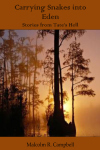 Carrying Snakes Into Eden: “Eden” in this story refers to Florida’s former Garden of Eden attraction on the Apalachicola River. It’s rather a tongue in cheek story about two college students who pick up a hitchhiker with a sack of snakes he captured in Tate’s Hell. He says they’re need in the Garden of Eden.
Carrying Snakes Into Eden: “Eden” in this story refers to Florida’s former Garden of Eden attraction on the Apalachicola River. It’s rather a tongue in cheek story about two college students who pick up a hitchhiker with a sack of snakes he captured in Tate’s Hell. He says they’re need in the Garden of Eden.
The students learn that skipping church that Sunday morning may have long-term consequences.
Opening Lines: When John and I drove to Carrabelle on a gray Sunday morning for brunch with the Boynton sisters, skipping church was the least of our sins. Julie and Kathy were seniors, cheerleaders, and the most popular blondes in high school. John and I, mere juniors, wore clean sport shirts and Jade East aftershave. Brunch was canceled when the parents returned from New Orleans on Seaboard’s Gulf Wind a week early. They saved us from prospective sins of the flesh. But we weren’t home free. In fact, our transgression on that April day in 1961 was a first for the Florida Panhandle.
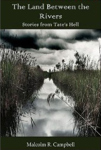 The Land Between the Rivers: This series of three folktales set in Tate’s Hell at the dawn of time is introduced by Eulalie, my conjure woman in the novella. They begin where the Seminole creation myth leaves off with stories about Panther, Snakebird and Bear–the first animals to walk the earth in the old legends.
The Land Between the Rivers: This series of three folktales set in Tate’s Hell at the dawn of time is introduced by Eulalie, my conjure woman in the novella. They begin where the Seminole creation myth leaves off with stories about Panther, Snakebird and Bear–the first animals to walk the earth in the old legends.
Panthers, of course, are highly endangered in Florida. When I was young, there were panthers in Tate’s Hell. Now they’re gone from the panhandle and can only be found in central and south Florida.
Openning Lines: One day when I was just a piddling kitten no bigger than a crow, I fell into Coowahchobee Creek while helping my conjure woman look for crawfish. The cold water spun me around like pinecone. I sulled up into a snarling fit three times my normal size and swatted the rocks and roots along the bank with my claws.
“Hush, little one,” Coowahchobee whispered. “Lena, look directly into Eulalie’s haint blue eyes and your thoughts will tell her you are ready to hear our stories.”
These stories all see for 99 cents and occasionally are featured free in book sales. I hope you enjoy them even if you don’t live in the Florida Panhandle.
–Malcolm
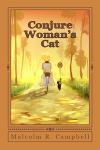 “Conjure Woman’s Cat” is available on Kindle ($2.99) and in paperback ($8.58) and, in addition to Amazon, can also be found at Powell’s, B&N, Smashwords and other online book sellers.
“Conjure Woman’s Cat” is available on Kindle ($2.99) and in paperback ($8.58) and, in addition to Amazon, can also be found at Powell’s, B&N, Smashwords and other online book sellers.


June 19, 2015
Back in Rome, Georgia is Interesting and odd
With all the usual hassles of moving, from building a new house on the family farm to selling the old house on the other side of the state, I had little time to think about how strange it is to be back in Rome, GA.
 I lived in Rome between 1978 and 1980 while teaching journalism courses at Berry College. I met my wife in Rome, and when we left in 1980 to seek our fortune in Atlanta 86 miles to the south, we thought the Rome phase of our lives was over.
I lived in Rome between 1978 and 1980 while teaching journalism courses at Berry College. I met my wife in Rome, and when we left in 1980 to seek our fortune in Atlanta 86 miles to the south, we thought the Rome phase of our lives was over.
We came back to the area to visit my wife’s family as well as friends we met at Berry College. The town was slowly changing–a revitalized downtown, new malls, new streets, and more people.
So, now we’re back after living in Atlanta suburbs farther and farther out from the city itself. We ended up in a small town of less than 10,000 people 50+ miles northeast of Atlanta for eleven years before moving here.
We saw the move as economically beneficial as well as forward looking. The farm is a much better environment than our subdivision of look-alike houses ruled by a homeowners association.
Nonetheless, the move also feels sort of like going home, or maybe going back in time, or maybe as tourists visiting a place where all the people we once knew have moved on. The farm has stayed more or less the same during all these years, though sad to say, both of my wife’s parents have passed away.
The city is both alien and familiar. This will take some getting used to. So will the traffic–not out where we live–when we drive into town to bury groceries, get stuff from Home Depot, or buy gardening supplies from the nursery.

Ford Buildings at Berry College
Berry College has grown since I worked there, adding new buildings and new programs. I get lost driving around the campus. None of the faculty, staff and students whom I once knew are there any more. The faculty house I lived in on campus is gone, destroyed by a fallen tree several years ago during a tornado. I feel like a ghost from another century (literally and figuratively) whenever I go there.
I think we’re getting settled in to the new house. We’ve repaired one of the falling-down out-buildings, put in new trees and shrubs, set up two, raised-bed gardens–even the cats are used to the new house.
I’m not yet settled in to Rome, though. It’s a pretty nice town, but I keep seeing it as it was and wondering just what kind of destiny brought me back to a place I once said goodbye to.
If only I could write a short story or novel about all this, I might figure it out.
–Malcolm
 Malcolm R. Campbell is the author of “Conjure Woman’s Cat” which can be purchased today and tomorrow for Kindle for only 99 cents.
Malcolm R. Campbell is the author of “Conjure Woman’s Cat” which can be purchased today and tomorrow for Kindle for only 99 cents.


June 16, 2015
What happens to the world if this post goes viral?
You are reading a post called “What happens to the world if this post goes viral” with a disquieting sense of deja vu that it has already gone viral and you are just now finding out about it (having been in prison or having sex or simply busy at work) and/or that the whole thing hasn’t happened yet and is coming to you from the future. Either way, if it goes viral and/or already has gone viral, what in fact will be the result?
Here are the probabilities:
It (this post which, in your reality, you think you are reading right now even though–as you will see–you probably aren’t) will pick up speed and become so ubiquitous nobody will remember where they saw it first or if they just heard about it so often they began to believe they saw it, to the extent that some people will become alarmed and start warning about the world tilting on its axis or frogs falling from the sky or various magic men coming down from their mountains to tell us once and for all the meaning of life.
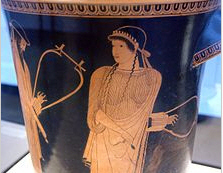
Sappho on a vase found years ago in an attic.
The speed of this post will exceed the speed of light and, as Einstein predicted, will become younger and younger until it ends up appearing on MySpace or an ancient CompuServe forum, ultimately to be discovered mixed into the poetry of Sappho that will be discovered 200 years ago on a papyrus long thought to have been lost or mixed up with the Nostradamus prediction about rogue photons calling out of the sky on a summer evening in 1566 or 1966 (depending on the translation).
It goes without saying that all of you who leave pithy comments will become either famous or infamous (perhaps both) and will start getting movie deals, hearing from old flames, learning that you forgot to pay a parking ticket in Carson City 15 years ago and now (with interest) you owe more money than most people earn in a lifetime even though, quite possibly (fate being what it is) time will move backwards and you’ll be talked about on the streets of London and Paris years before you are born, completely tangling up the records at Ancestry.com.
Once something becomes ubiquitous, people (especially conspiracy theorists) begin debating whether it’s a blessing or a curse with everyone pointing fingers at the top Presidential contenders and demanding that if they are responsible, they apologize or lamely say they misspoke or, if elected, have new laws ready to put on the books to contain the real or imagined dangers that may or may not occur either now or in the past.
As a famous scientist will say in the future or past, depending on which universe you hang you hat in, there is no containing rogue photons that spin off into lives of their own when a viral post collides with the sides of  bent space, causing people who we’ve always thought to have lived in the past to have not lived there, or if they did, did things differently so that the future changed in ways that could not be predicted, one of them being that this post ended up never being written at all.
bent space, causing people who we’ve always thought to have lived in the past to have not lived there, or if they did, did things differently so that the future changed in ways that could not be predicted, one of them being that this post ended up never being written at all.
Once this post flows backward in “time” to 1916, Einstein will see things differently or even dream things differently so that the general theory of relativity takes on either new meanings or collapses altogether depending on whether one is there to observe the event or not (like that darned cat that may or may not be dead in the box).
People–and we don’t yet know who they are except that they probably live in Nebraska–will start decoding this post with the same fervor similar people have hopelessly tried to decode the Voynich manuscript, and there will be among them advanced code breakers who will begin to find that when the letters in this post are shaken up and mixed with every other word from Finnegans Wake the result is a new set of theories for the meaning of life, how to achieve immortality, and even who will be standing outside your house every Bloomsday to see if you’re reading Joyce or, heaven help you, Barbara Cartland.
Cartland
New religions and political parties will be born out of the chaos of dreams and the dreams of dreams that have no beginning and no end, advocating on one side of the coin that this post is total nonsense and that everyone who left a comment on it is a daft buffoon, and on the other side of the coin, that this post is part of the great shift in consciousness predicted by seers and soothsayers and what this means for you–the innocent reader–is that your will be swept up into arguments and/or country songs and/or various legends that will show everyone just how silly and/or profound beliefs can be when everyone is talking about them at once.
You will discover that you’re not the same person that you were when you started reading this post and that, depending on how the magic hidden within it impacts your psyche, you will either join new causes and help save the world or you will hide in a cave until the world blows over (figuratively speaking, perhaps) and in the final analysis you will wonder what kind of synchronicity exists in a world where a post like this appears seemingly out of nowhere (unless you think Sappho wrote it) and comes to your attention on a day when you had no reason to be logging on to WordPress, MySpace or CompuServe (depending on which time period you ended up in).

Bacon
Assuming that all of this is true, chances are optimal that you are either not reading this post right now or–just as likely–you are a sage living at the time of Frances Bacon who is quite certain that whether Shakespeare wrote the plays or not, some of the lines in this missive were hidden away in misplaced early draft of “All’s Well That Ends Well,” or on the other hand, assuming that none of this was true while the post was being written, once it’s ubiquitous it will become true, proving once and for all that cause and effect isn’t quite what we thought it was, but true or false, it appears that there’s nothing we can do about anything that becomes viral.


June 13, 2015
AudioFile Review of ‘Jock Stewart and the Missing Sea of Fire’
 I had a good time writing my comedy/satire about an old-time reporter caught in the modern age of journalism. It was even more fun listening to the audio version of the book because the narration worked so well.
I had a good time writing my comedy/satire about an old-time reporter caught in the modern age of journalism. It was even more fun listening to the audio version of the book because the narration worked so well.
Amazon readers “got” the book, seeing it as just as wild and crazy as it really is…
…as in Elise’s comment: “Plenty of memorable characters reside in Jock’s home town, like a perpetually doughnut-eating cop by the name of Kruller. Those kind of little word plays and the intentional use of old clichés will make you laugh out loud. Jock projects himself as a hard core kind of guy, but deep down he’s a softie. ”
AudioFile magazine thinks so, too:
“Narrator R. Scott Adams’s rapid-fire delivery mirrors the speech of fast-talking old-style newshound Jock Stewart. Listeners need all their skills of concentration, or they’ll miss the story’s wit and even the occasional clue. Sea of Fire is a missing racehorse, but the mystery of his whereabouts sometimes seems merely incidental. The story is high on humor but light on plot–a vehicle for sex, cigarettes, steak, and zinfandel. Stewart, a print journalist, is a likable dinosaur in a changing world. Adams’s timing is perfect, but a second listen is recommended to catch what is missed first time around.”
–Malcolm


June 12, 2015
Zeke Zany interviews me to get more words for his blog
 Zeke Zany here at Zany Antics & Books where I chronicle my life as a car mechanic and part-time gigolo while working on my epic novel about a man who fixes the transmissions of rich widows. I’ve wanted to be a writer ever since I accidentally spelled a four-letter word beginning with “F” with my ABC blocks and my daddy’s reaction taught me the power or writing. Today’s guest is Malcolm R. Campbell who’s going to fill us in on who he is and why.
Zeke Zany here at Zany Antics & Books where I chronicle my life as a car mechanic and part-time gigolo while working on my epic novel about a man who fixes the transmissions of rich widows. I’ve wanted to be a writer ever since I accidentally spelled a four-letter word beginning with “F” with my ABC blocks and my daddy’s reaction taught me the power or writing. Today’s guest is Malcolm R. Campbell who’s going to fill us in on who he is and why.
Zeke: Tell us about yourself
 Malcolm: Well, Zeke, if you’d done your homework like a real interviewer, you’d know that I made my first fortune by selling my novels under pseudonyms that just happened to be the most famous names on the planet, starting with my bestselling novels Hunt for Brown November and Hunt for Blue December “by Tom Clancy” in 1987 and 1986. They were so good, even Tom thought he’d written them and came to my cell in the state pen to shake my hand.
Malcolm: Well, Zeke, if you’d done your homework like a real interviewer, you’d know that I made my first fortune by selling my novels under pseudonyms that just happened to be the most famous names on the planet, starting with my bestselling novels Hunt for Brown November and Hunt for Blue December “by Tom Clancy” in 1987 and 1986. They were so good, even Tom thought he’d written them and came to my cell in the state pen to shake my hand.
Zeke: What are you currently writing/working on?
Malcolm: I’m writing answers to your one-size-fits-all interview questions. I’m working on getting done writing these answers as soon as possible, preferably before the Scotch runs out.
Zeke: When did you discover you wanted to be a writer?
Malcolm: I never discovered any such thing. Unfortunately, a muse named Siobhan with nothing better to do latched onto me like ugly on and ape (even though we’re both beautiful people) and demanded that I go into the biz. We got off to a bad start when critics around the world laughed at my debut novel To Kill a Blue Jay written under my Lee Harper alias. Since then, it’s been “write good, or else.”
Zeke: Is there any part of you in your characters.
Malcolm: The worst parts. That’s what sells, Zeke.
Zeke: Are you a plotter or a pantser?
Malcolm: As God as my witness, I’m going to kill the next person who asks me this lame question. This question is so lame, it takes two crutches to hold it up. Suffice it to say, I wear pants at all times except during baths and sex.
Zeke: If Hollywood gave you the power to cast your novel in progress, what stars would you pick?

Wikipedia photo
Malcolm: Hollywood never gives writers that power. You just want some names in this post that will attract search engines. Well, I can help you ought with that: Olivia Wilde, Mila Kunis, and Megan Fox in my soon-to-be-released Three Bucks in the Fountain.
Zeke: When you are developing a book, what tools or techniques do you use, e.g. timelines, Ouija boards, character interviews, copy and pasting from obscure novels, sentence diagrams, or novel writing software?
Malcolm: Jack Daniels and a pencil work for me.
Zeke: Has your technique changed over time?
Malcolm: I started out with Ripple and a pen, but that’s what landed me in the slammer.
Zeke: Where you you get your ideas?
Malcolm: The mother ship beams them down.
Zeke: What kind of writing environment do you prefer: couch, bed, coffee shop, music, noise, abandoned hearse, the great out doors.
Malcolm: Siobhan says my best work comes when I’m writing in the drunk tank, and I’m sure as hell not calling my muse a liar.
Zeke: Do you have any advice for aspiring writers.
Malcolm: Avoid bloggers with canned interview questions that make you look like an amateur. Otherwise, promise your mother that “I’ll be all around in the dark – I’ll be everywhere. Wherever you can look – wherever there’s a fight, so hungry people can eat, I’ll be there. Wherever there’s a cop beatin’ up a guy, I’ll be there. I’ll be in the way guys yell when they’re mad. I’ll be in the way kids laugh when they’re hungry and they know supper’s ready, and when the people are eatin’ the stuff they raise and livin’ in the houses they build – I’ll be there, too.”
Zeke: Where can we find you on the Internet?
Malcolm: http://www.peoplefinders.com


June 8, 2015
Thoughts on ‘The Invention of Wings’
“Alternating between Sarah’s and Handful’s contrasting perspectives…allows Kidd to generate unstoppable narrative momentum as she explores the troubled terrain that lies between white and black women in a slaveholding society… The novel’s language can be as exhilarating as its powerful story… By humanizing these formidable women, The Invention of Wings furthers our essential understanding of what has happened among us as Americans – and why it still matters.”
—The Washington Post
Sue Monk Kidd’s powerful historical novel The Invention of Wings returns to the public’s consciousness the effective, famous and infamous abolitionist and feminist orators/authors, sisters Sarah Moore Grimké (1792-1873) and Angelina Emily Grimké Weld (1805 – 1879). (See PBS’)
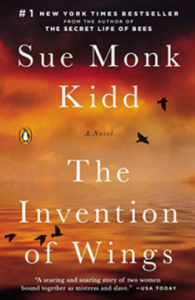 Born into a Charleston slaving-holding family that was widely known in the city’s upper levels of society, both girls would–in spite of a stern mother and a resolute father–evolve into outspoken ladies who would ultimately defy their kin, city, and church to speak out against slavery and discrimination against women.
Born into a Charleston slaving-holding family that was widely known in the city’s upper levels of society, both girls would–in spite of a stern mother and a resolute father–evolve into outspoken ladies who would ultimately defy their kin, city, and church to speak out against slavery and discrimination against women.
As the PBS article notes, “The sisters’ public speaking and involvement in the political sphere drew condemnation from religious leaders and traditionalists who did not believe that it was a woman’s place to speak in public. The sisters soon found themselves fighting for equality of the sexes and women’s rights, following women like Sojourner Truth in linking the rights of blacks and women.”
The Invention of Wings shows the sisters’ (and Sarah’s Black maid Handful’s) struggles at a close, personal level as the women’s views about themselves and their places in the world evolve during the novel’s 1803 to 1838 time frame. This is the novel’s first great strength.
From Sarah’s perspective: “All things pass in the end, even the worst melancholy. I opened my dresser and pulled out the lava box that held my button. My eyes glazed at the sight of it, and this time I felt my spirit rise up to meet my will. I would not give up. I would err on the side of audacity. That was what I’d always done.”
From Handful’s perspective: “Goods and chattel. The words from the leather book came into my head. We were like the gold leaf mirror and the horse saddle. Not full-fledge people. I didn’t believe this, never had believed it a day of my life, but if you listen to white folks long enough, some sad, beat-down part of you starts to wonder.”
Its second great strength comes through the seamless blend of historical facts and characters and fictional characters and events. You realize how expertly this hand-in-glove fit was accomplished when you read the author’s note at the end of the book. (Kidd also provides a list of references.)
 I became a fan of Sue Monk Kidd in 1996 when I read her The Dance of the Dissident Daughter: A Woman’s Journey from Christian Tradition to the Sacred Feminine. I thought of that book again as I read The Invention of Wings. I does not surprise me that an author who wrote about her own escape from religious patriarchy would be drawn to two historical sisters who also took strong issue with the organized church, sexism and racism.
I became a fan of Sue Monk Kidd in 1996 when I read her The Dance of the Dissident Daughter: A Woman’s Journey from Christian Tradition to the Sacred Feminine. I thought of that book again as I read The Invention of Wings. I does not surprise me that an author who wrote about her own escape from religious patriarchy would be drawn to two historical sisters who also took strong issue with the organized church, sexism and racism.
The Invention of Wings is a testament to a wonderful writer’s ability to put herself into the shoes of two unfortunately obscure civil rights and feminist leaders and bring them to back life again in a highly readable story.
–Malcolm
 Malcolm R. Campbell is the author of “Conjure Woman’s Cat,” a novel about small-town racism in the Florida Panhandle during the Jim Crow era.
Malcolm R. Campbell is the author of “Conjure Woman’s Cat,” a novel about small-town racism in the Florida Panhandle during the Jim Crow era.


June 4, 2015
Give auntie some sugar
When I was a kid and some long lost relative came to visit, they often said something horrifying like, “Come on, Malcolm, give Auntie some sugar.”
Truth be told, I still get the willies thinking about it.
However, if auntie had been a conjure woman, she could have made me run over and hug her without having to say a word. How?
A Sweetening Spell
 These make people like you, feel better about you, or appreciate you in some way whether it’s a relative, a co-worker or even a judge.
These make people like you, feel better about you, or appreciate you in some way whether it’s a relative, a co-worker or even a judge.
(In general, sweetening may help you attract a lover, but for true industrial-strength romance, check out these love spells.)
You’ll need:
Something Sweet (sugar, honey, Karo Syrup, molasses)
An empty jar (baby food jars work well)
A piece of brown paper (a grocery sack is fine)
Appropriate candles (see below)
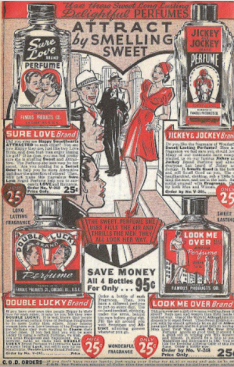
If you want hot romance, well that usually requires something stronger.
What to do:
Write the name of your auntie, co-worker, judge of whoever in the middle of the paper three times with a pencil.
Now, turn the paper side ways and write your name across those three names three times. (Some say four times). Be thinking about what you’re wanting.
Fold up the paper and push it down into the jar of sweetener. Say aloud you intention: “I want Bob to like me.”
Close the jar and put it on a shelf, desk, workbench, or nightstand where it won’t be disturbed.
To ramp up the power, burn candles next to the jar twice a week, white for general esteem, brown for court cases, red for passionate love and pink for friendship. (optional)
Now, when you need a friend or a favor or “a little sugar,” you won’t have to ask for it.
There are many variations of this trick, and you can find them on line by using search terms like sweetening spell and conjure honey jar. You’ll find a few sites like this one and this one.
So, here you have a bit of friendly white magic!
Malcolm
Ma
 lcolm R. Campbell is the author of “Conjure Woman’s Cat,” a Jim-Crow era novella set in the Florida Panhandle. The KKK was very strong in Florida in those years, so Eulalie has her work cut out for her. On sale for 99 cents June 4 and June 5, 2015.
lcolm R. Campbell is the author of “Conjure Woman’s Cat,” a Jim-Crow era novella set in the Florida Panhandle. The KKK was very strong in Florida in those years, so Eulalie has her work cut out for her. On sale for 99 cents June 4 and June 5, 2015.


June 1, 2015
Readers, do disparate books fracture your dreams?
A friend of mine on Facebook whose been watching H. G. Wells movies said that her dreams have turned into H. G. Wells movies.
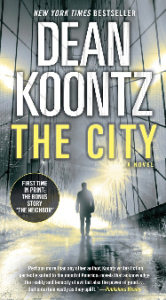 My dreams never turn into the exact movies: more like some fractured mess of the movie where everyone’s crazy and all hope is lost.
My dreams never turn into the exact movies: more like some fractured mess of the movie where everyone’s crazy and all hope is lost.
The same thing happens to me with books. I read books most often before falling asleep. I’ve been cursed with “the ability” to see scenes of my own invention out of the book I’m reading if I ever doze off–or even rest my eyes.
My scenes seem real to me as though I’m propped up in bed still reading the book. Then the cat bothers me or I fluff up the pillow and realize I’ve been making it up “reading” something that’s not in the book, but that could be in the book. This happens every time without fail. When my wife finds me dozing, she thinks I’m asleep rather than writing new scenes for another author’s book.
There doesn’t seem to be a cure for this.
Dreams and reality get fractured when I’m reading more than one book at a time, say, Dean Koontz’ “The City” and Sue Monk Kidd’s “The Invention of Wings.”
So, there I am holding Kidd’s book about life on a plantation and suddenly Sarah and Hetty are walking down Fifth Avenue. That’s rather jarring since the plantation is in Charleston.
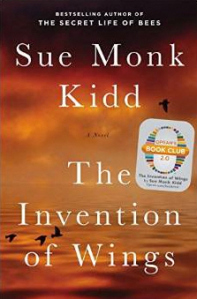 The nonsensical scenes that arise out of this jolt me awake faster than cats and twisted pillows.
The nonsensical scenes that arise out of this jolt me awake faster than cats and twisted pillows.
The plot further thickens (AKA, gets messed up) when I’m working on multiple writing projects, say, one set in a swamp and one set in the mountains. Sometimes I open up the file and find myself planning to write a scene that belongs in the other book.
Fortunately, sentences like “the grizzly bear stood next to the Ponderosa Pine forest” tip me off that I’m not currently in the Florida swamp manuscript. If I see a cottonmouth moccasin, I assume I’m not in the Montana mountains.
I don’t know if readers have this trouble or if it’s just writers. I feel like I’m juggling realities like on of those old-time performers juggle bowling pinson the Johnny Carson show.
There are says when it’s best not to step outside because I don’t know if my front yard will be there or something our of a Stephen King book.
Malcolm
 Malcolm R. Campbell is the author of contemporary fantasy and magical realism which explains a lot. His fantasy, coming-of-age novel The Sun Singer is currently on sale on Amazon for 99 cents.
Malcolm R. Campbell is the author of contemporary fantasy and magical realism which explains a lot. His fantasy, coming-of-age novel The Sun Singer is currently on sale on Amazon for 99 cents.





